
We had spent the night at a lake north of Granada, from where we had a great view over to the Sierra Nevada, living up to its name with still visible snowfields at the 3500 high mountain range. 50km east of Granada lies Guadix, a town very enticing with its cave houses, which you already can see from the highway. We took the turn off and went to explore Guadix.

The cathedral has an attached museum of religious art and of course you can climb the bell tower, which gives you a great view over the area.





The sculpture is made of Carrara marble, and a true replica of the original by Michelangelo, which is preserved in the Basilica of Saint Peter in the Vatican. Brutally destroyed during the Spanish Civil War, it was masterfully rebuilt a few years ago by the sculptress Mariángeles Lázaro Guil.


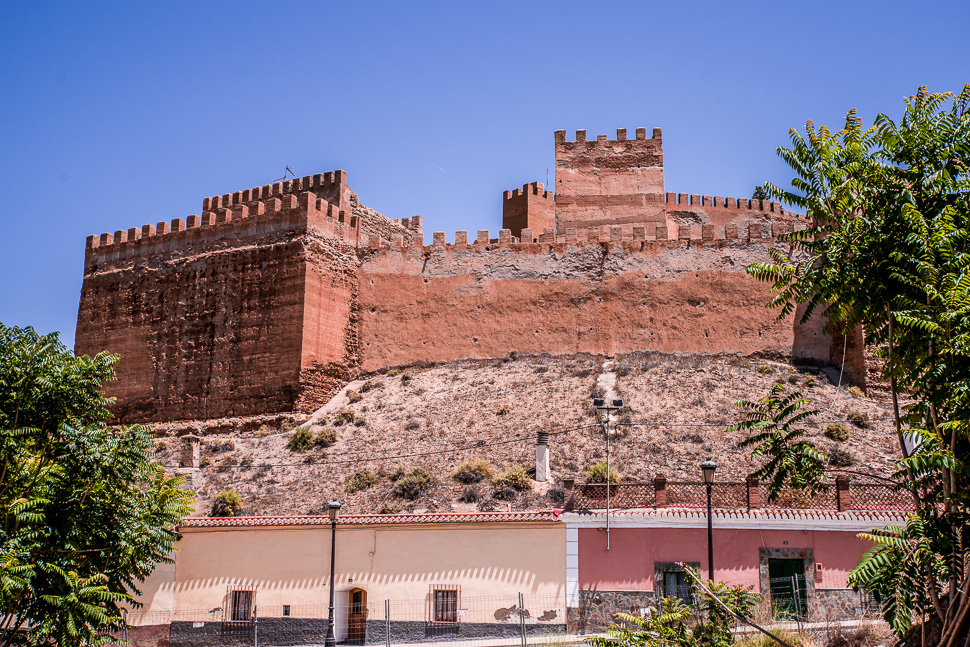

Guadix is best known for its cave district, where around 2000 caves have been dug in the soft tufa and loess rock. The caves provide an excellent climate, staying cool during summer and warm during winter. We visited a cave, which was a home to a family before it was turned into a museum.



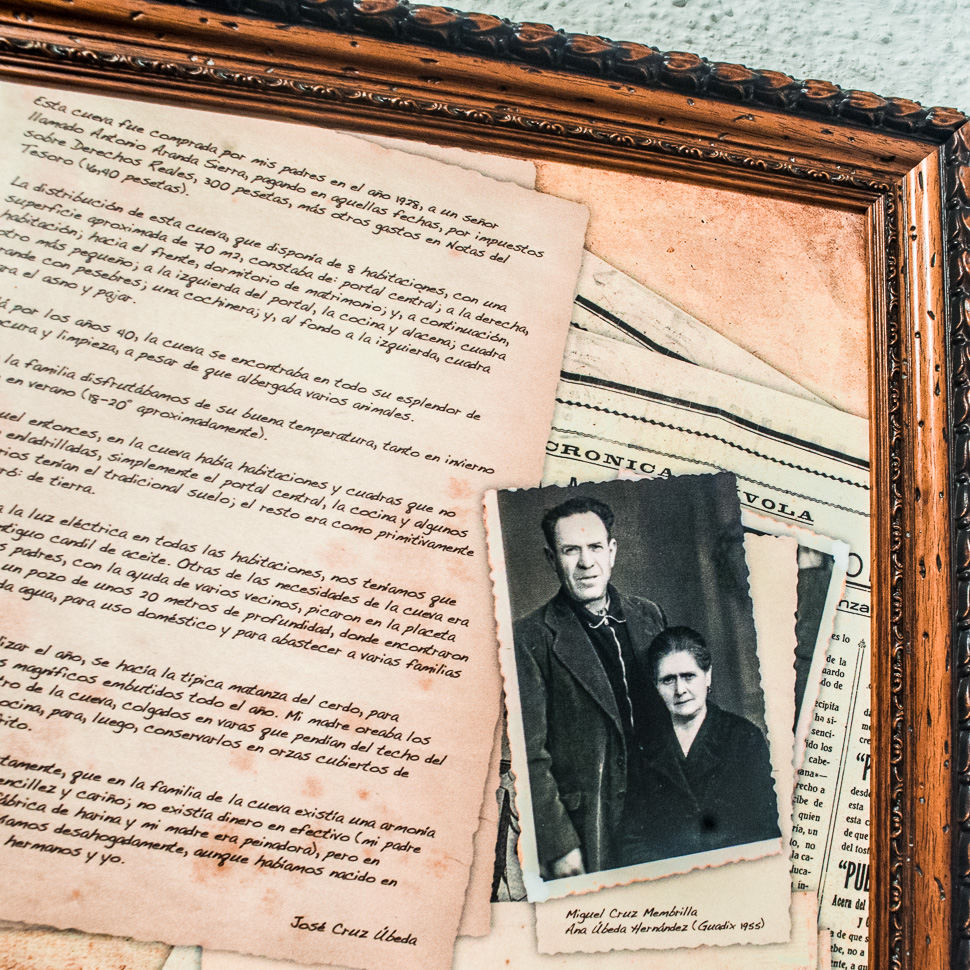

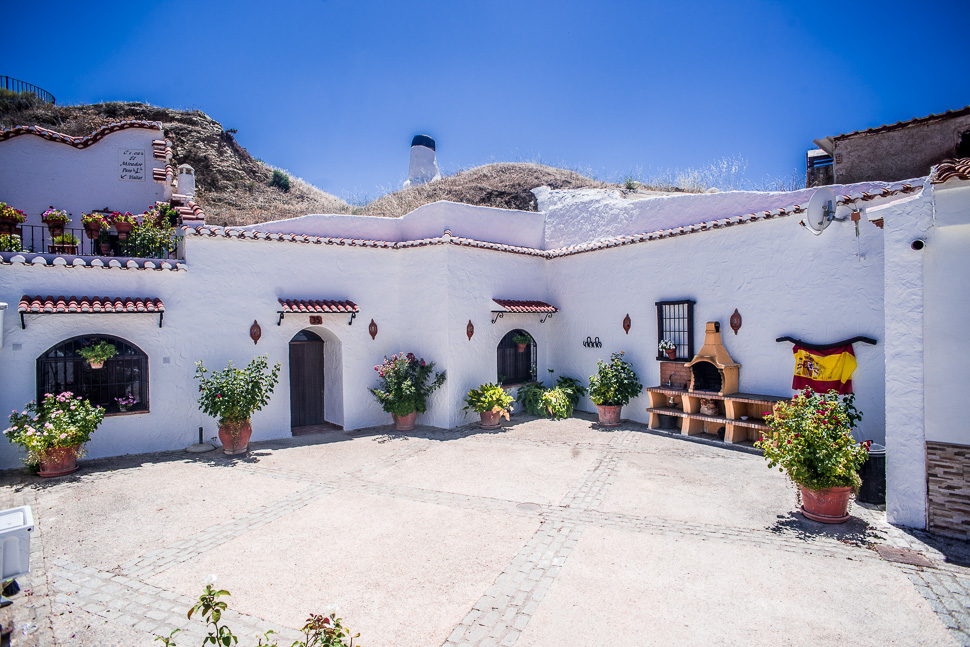
From the outside you only see the white facades and the chimneys peaking out of the hill.
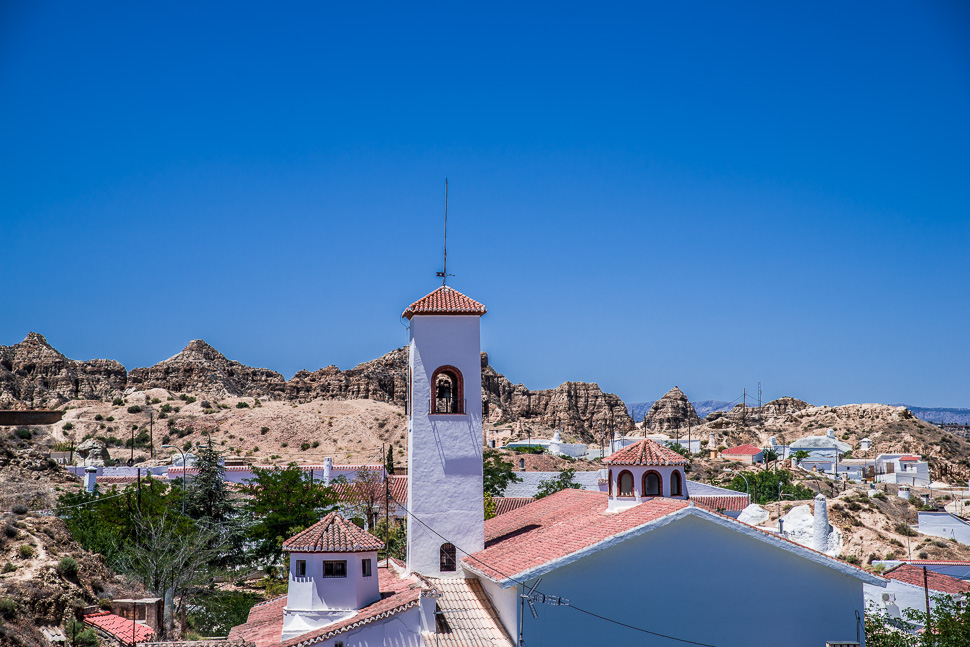

There are still around 5.800 inhabited caves, with a total of 11.795 known caves in the province.

After our tour through the city of Guadix, we were looking for a lake again, which we found north of Baza. The water was nearly turquoise and great for a swim.


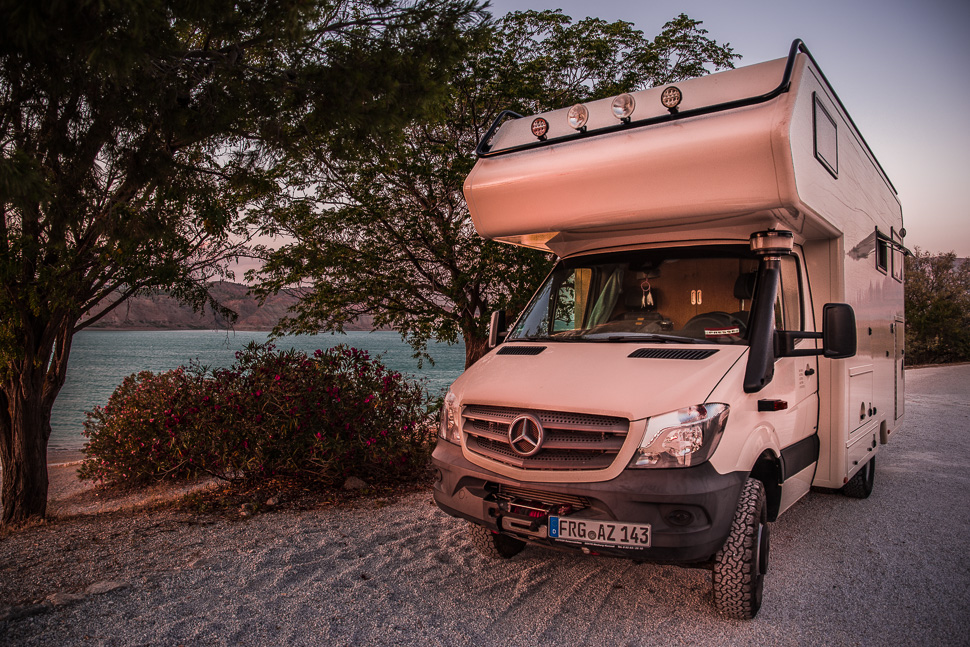

After a night at the lake, we were on the way to Cartagena, but did a last stop at Lorca, the town which was so severely damaged in 2011 by an earthquake. More on our next post!
